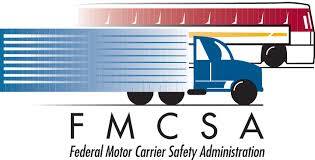
If you’ve ever been involved in commercial trucking, logistics, or freight transportation in the United States, you’ve likely heard of the FMCSA. But what exactly is it, and why is it important?
Let’s break it down.
What Does FMCSA Stand For?
FMCSA stands for the Federal Motor Carrier Safety Administration. It’s a division of the U.S. Department of Transportation (DOT), created in 2000 to improve road safety by regulating and overseeing the commercial motor vehicle (CMV) industry.
In simple terms, the FMCSA sets and enforces rules for truck and bus companies to keep America’s roads safe.
What Does the FMCSA Do?
The FMCSA is responsible for a wide range of safety regulations and programs, including:
1. Driver Regulations
The FMCSA ensures that commercial drivers meet certain safety standards. This includes:
-
CDL (Commercial Driver’s License) requirements
-
Drug and alcohol testing rules
-
Hours of Service (HOS) regulations, which limit how long a driver can operate without rest
-
Medical qualifications for drivers
2. Vehicle Safety
They set safety standards for commercial vehicles, including:
-
Regular inspections and maintenance
-
Brake and lighting system requirements
-
Ensuring vehicles are not overloaded or improperly loaded
3. Carrier Oversight
The FMCSA registers and monitors trucking companies and freight brokers. All commercial carriers must have a USDOT number, and many require an MC number for interstate commerce.
They also assign safety ratings and keep records of violations or compliance issues.
4. Data Collection & Safety Monitoring
The FMCSA runs several databases and programs like:
-
CSA (Compliance, Safety, Accountability) – a scoring system that tracks safety performance
-
SMS (Safety Measurement System) – collects data from roadside inspections, crash reports, and investigations
-
SaferWeb and FMCSA Portal – for public access to carrier safety data
Why is the FMCSA Important?
The FMCSA plays a critical role in preventing accidents and saving lives. By enforcing safety standards, they help reduce:
-
Fatigued driving
-
Substance abuse behind the wheel
-
Improper vehicle maintenance
-
Unqualified drivers
Their mission: "To reduce crashes, injuries, and fatalities involving large trucks and buses."
Who Needs to Comply with FMCSA Regulations?
If you operate or manage any of the following, FMCSA rules likely apply to you:
-
Trucking companies (interstate and sometimes intrastate)
-
Bus companies (charter, school, or interstate travel)
-
Freight brokers and freight forwarders
-
Hazardous material carriers
-
Owner-operators with commercial vehicles over 10,000 lbs
Whether you're a fleet owner, a new trucking business, or an independent driver, understanding and complying with FMCSA regulations isn’t optional — it’s essential.
By keeping the industry accountable and focused on safety, the FMCSA helps protect not just truckers and their cargo, but everyone on the road.
Need Help Navigating FMCSA Compliance?
From DOT numbers to safety audits and ELDs, staying compliant can be complex. Consider working with a transportation compliance expert or using trusted FMCSA registration services.
Join the Hudson Brothers team and we will keep you up to date.

